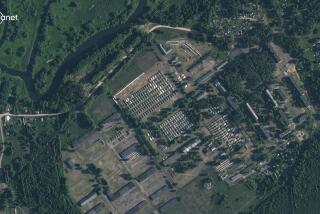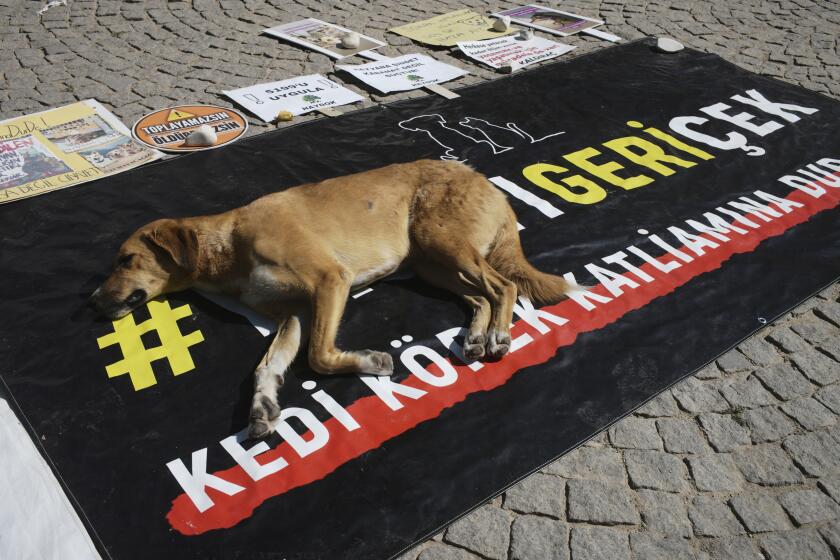Report Sees Little Justice for Poor in New Orleans
For poor criminal defendants, “justice is simply unavailable” in New Orleans now, concludes a Justice Department report that calls for a major overhaul of the city’s public defender system.
The report, obtained by The Times, says the city needs 70 full-time public defenders, more than six times the number of part-time defenders it has now, and a $10-million infusion of cash to have an adequate system.
New Orleans had 39 public defenders before Hurricane Katrina struck last August, all but eight of whom were laid off because of a funding crisis precipitated by the storm.
The devastating storm exacerbated existing problems, according to the report, which says categorically that it would be a bad idea to try to redo the system that was in place before the hurricane.
“No effort should be made nor money spent on recreating the public defender philosophy and focus ... that existed before Katrina,” the report says.
Instead, the entire system of indigent representation needs to be changed and the people running it should be replaced, the report says.
“There appeared to be little accountability within the office” of the Orleans Parish Indigent Defender program, according to the study prepared by three experts for the Justice Department.
“There were no client files or any other records or data, save a monthly tabulation of cases closed and how they were closed.... There is no phone number for the office and clients cannot come to the office,” the report says.
Public defenders in New Orleans “rarely meet with their clients, particularly when their clients are in jail,” the report says.
And the way the office has operated, indigent defendants have no representation between the time bail is set after arrest and many weeks later when the district attorney’s office decides whether to take the case to trial or to drop the charges.
That means that during the crucial time after arrest when prosecutors are investigating the case, the defendant has no representation.
The report was written by Nicholas L. Chiarkis, Wisconsin’s chief public defender, Randolph N. Stone, who runs the clinical criminal law program at the University of Chicago, and D. Alan Henry, a consultant and former executive director of the Pretrial Services Resource Center in Washington, D.C.
Attorneys at the Justice Department’s Bureau of Justice Assistance, which commissioned the report in conjunction with the Southeast Louisiana Criminal Justice Recovery Task Force, edited the report before sending it to Louisiana officials.
The report comes eight months after Katrina struck and a year after the Louisiana Supreme Court issued a unanimous ruling that the state’s indigent defense system, which represents 80% of defendants, was fundamentally flawed.
Louisiana’s indigent defense system has been criticized as one of the worst in the country.
It is the only one funded substantially by court fees generated from traffic tickets. That revenue source, unreliable at best, has diminished sharply since the storm.
The report says: “The Louisiana State Legislature and Orleans Parish officials should work together to provide the Orleans Parish defender program with funding in a manner that is adequate, predictable and data-driven. Reliance on [traffic] tickets as the main source of funding lacks these attributes.”
The report also says funding for a public defender program needs to be at parity with the district attorney’s office and “strong consideration should be given to a system of state funding.”
Total funding required to run a constitutionally adequate indigent defender program in New Orleans is estimated at $8.2 million a year.
However, the report says, another $1.1 million would be needed to purchase the computer equipment necessary to develop a management information system to run a modern public defender’s office.
Currently, public defenders in New Orleans work part time and are paid $29,000 a year. The report says public defenders need to be full time and that they should be paid an average of $54,000.
Perhaps most important, the report says the philosophy of the office should change from one that is oriented toward the needs of judges to one that is focused on the needs of clients.
As part of achieving that goal, the report urges the Orleans Parish Indigent Defender Board to “designate an esteemed individual” to serve for about six months as an interim director to begin restructuring the program.
This person “should be a leading and respected figure of the New Orleans legal community,” such as a retired judge, former law school dean, partner of a law firm or director of a legal services program “with a demonstrated commitment to improving the legal system,” the report says.
Tilden Greenbaum, the chief public defender in New Orleans, did not return a call seeking comment.
Louisiana Supreme Court Justice Catherine D. Kimball praised the report as an “excellent job.”
It also was lauded by two new members of the Orleans Parish Indigent Defense Board.
All of the board’s prior members have left since the hurricane.
“What really struck me is that the report really emphasizes the importance of structural change rather than Band-Aids,” said Pamela R. Metzger, who runs the criminal law clinic at Tulane Law School in New Orleans.
The report makes it clear “we have to rebuild the system from the ground up,” said Dane S. Ciolino, who teaches legal ethics and criminal law at Loyola, the other major law school in New Orleans.
“It’s not like we’re starting with a usable slab we can build on,” Ciolino said, adding that New Orleans needs to create “a system where lawyers aren’t doomed to substandard performance due to excessive caseloads.”
More to Read
Sign up for Essential California
The most important California stories and recommendations in your inbox every morning.
You may occasionally receive promotional content from the Los Angeles Times.










